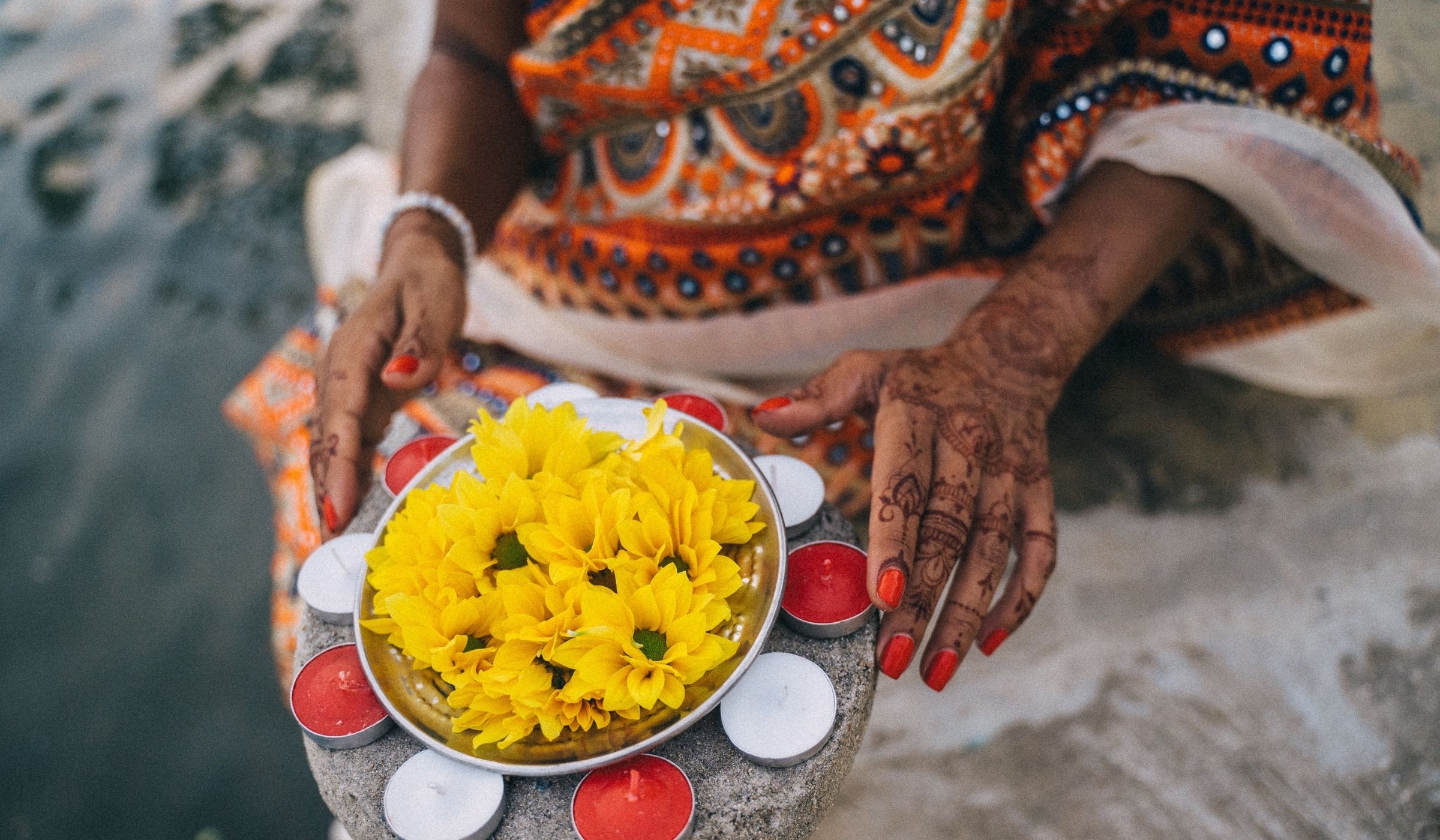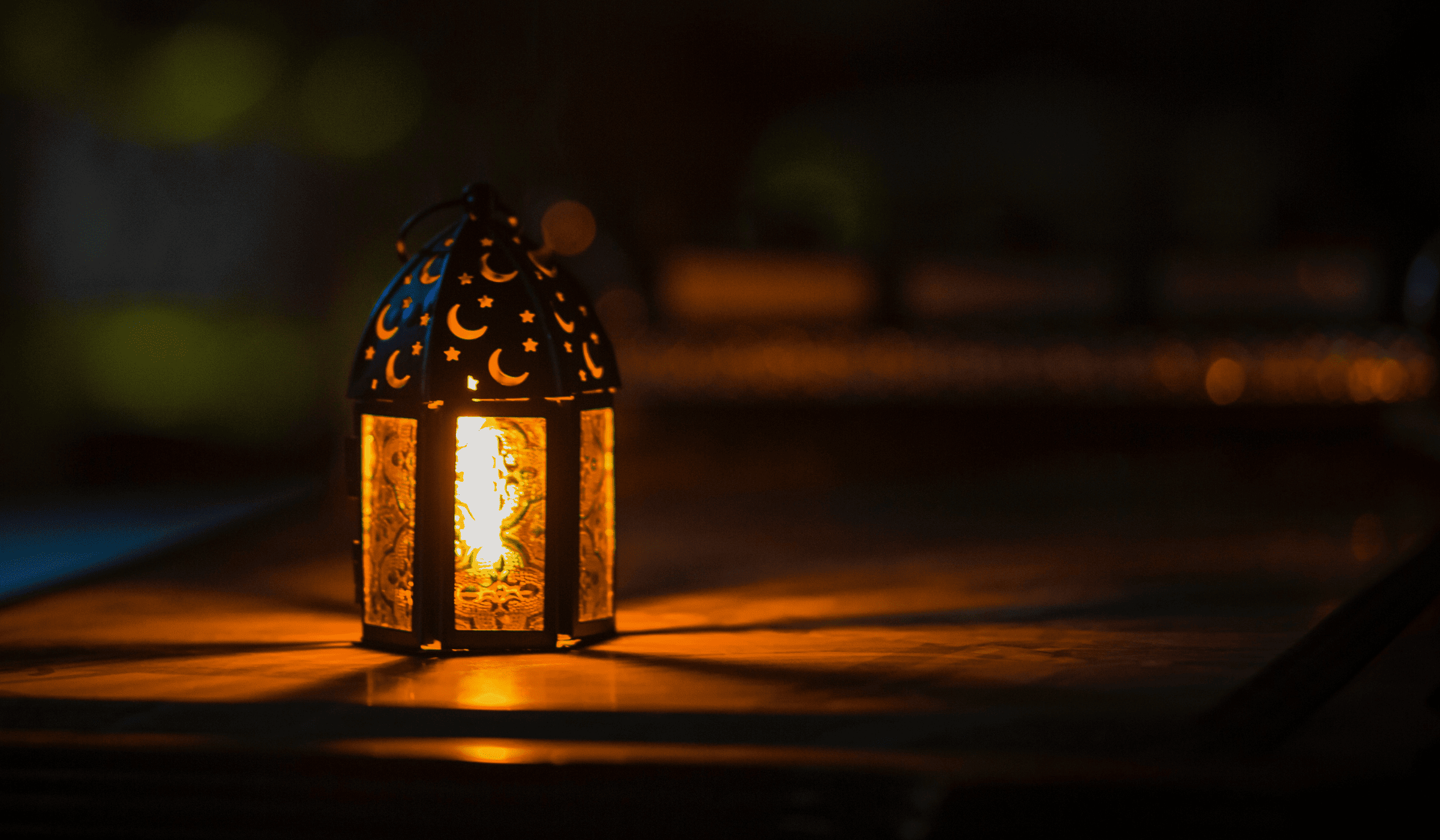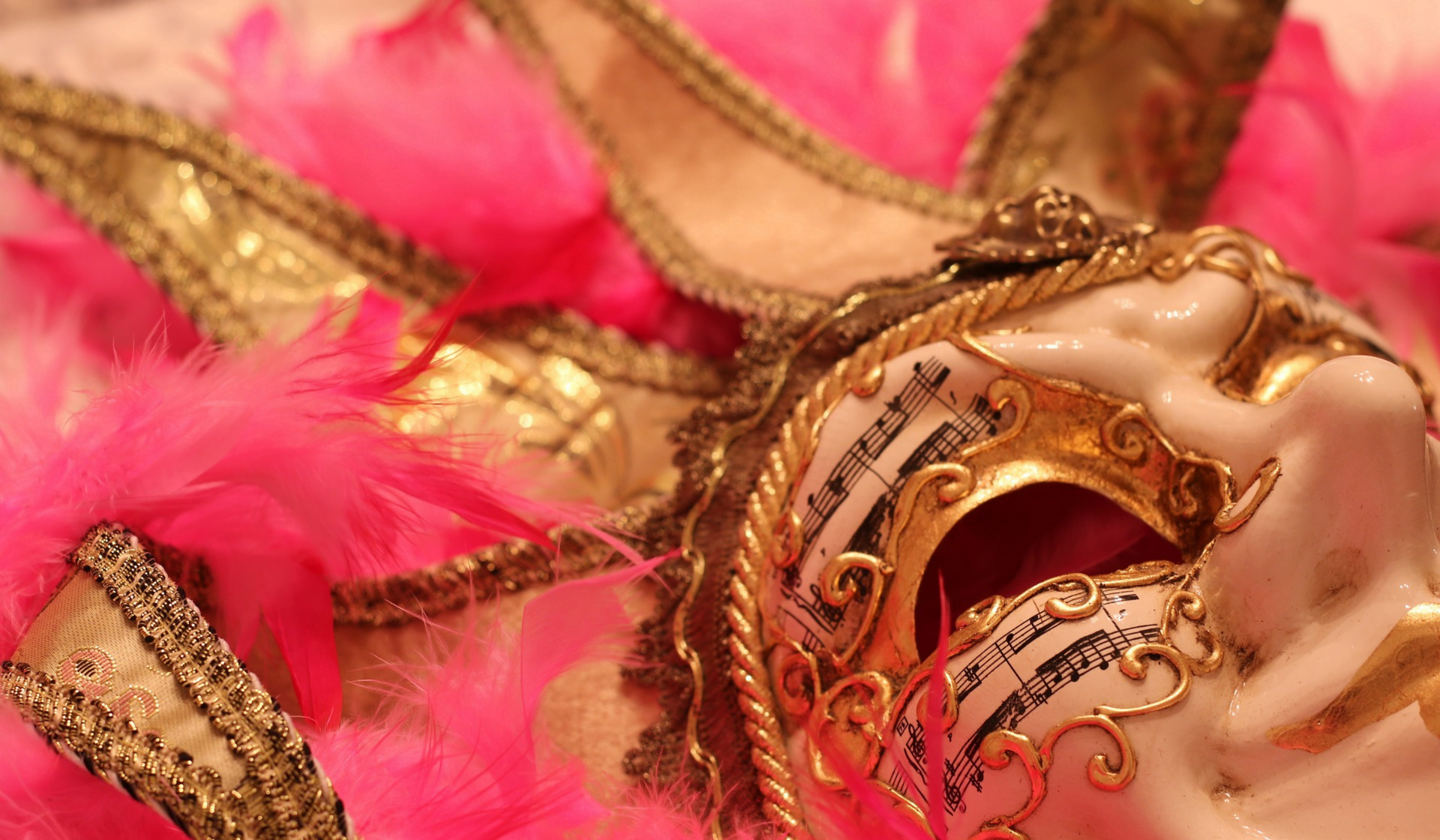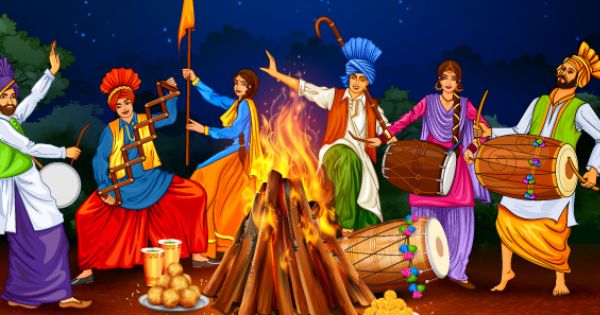February dates for your diary
Calendar snapshots
2nd Imbolc, Pagan/Wicca
Falling at the midway point between the winter solstice and the spring equinox, this ancient festival marks the beginning of spring. Where Christianity and the old traditions have merged, the day is also celebrated by honouring St Brigid. Traditionally, straw dolls were made in her image and beds laid out in each home, to welcome her visit and blessing of the livestock.
18th Lailat al Miraj, Islamic
Lailat al Miraj remembers the Prophet Mohammed’s ascension into heaven. It is celebrated by Muslims across the world, with special prayers and a telling of the story, in which the Prophet received instructions from God for the Salat, the requirement for Muslims to pray five times per day.
22nd Ash Wednesday, Christian
Ash Wednesday is the first day of Lent in the Western Christian calendar. It is observed by attending special services at church, where ashes are used to mark people’s foreheads. These are made by burning the palm crosses from Palm Sunday, the weekend before. Christians often leave the ash on their foreheads all day as a public profession of their faith.
This month’s dates at a glance
Religious/cultural
2 – Imbolc*/Candlemas - Wicca and Pagan
3 – Setsunbun-sai - Shinto
5 – Triodion begins - Orthodox Christian
5 – Thaipusam - Hindu
6 – Tu BiShvat - Judaism
12 – Sunday of the prodigal son - Orthodox Christian
14 – Valentine’s day - Christian
15 – Nirvana day - Buddhist
18 – Maha Shivratri - Hindu
Lailat al-Miraj - Islam
19 – Meatfare Sunday - Orthodox Christian
21 – Losar begins - Buddhist
21 – Shrove Tuesday - Christian
22 – Ash Wednesday (start of Lent)- Christian
22 – Feast of the chair of Saint Peter - Catholic Christian
26 Feb-1 Mar – Intercalary days - Baha’i
26 – Cheesefare Sunday – Orthodox Christian
27 – Great Lent begins – Orthodox Christian
Awareness and events
1 – World Hijab Day
1-7 – World Interfaith Harmony Week
2 – Time To Talk Day
4 – World Cancer Day
6 – International Day Of Zero Tolerance To Female Genital Mutilation
6-12 – UK Race Equality Week
6-12 – Children’s Mental Health Week
7 – Safer Internet Day
11 – International Day Of Women And Girls In Science
12 – Red Hand Day For Child Soldiers
15 – International Childhood Cancer Day
17 – World Human Spirit Day
20 – World Day Of Social Justice
January dates for your diary
Calendar snapshots
9th Seijin no hi, Shinto
Seijin no hi is an ancient Japanese ceremony to mark young people’s coming of age at 20 years old. This is the age at which Japanese people are legally allowed to gamble, drive and drink alcohol. In most towns, young people will gather to hear a local dignitary speak, and then go with their families to a Shinto shrine to pray.
19th Timkat, Ethiopian Orthodox
This is the Ethiopian Orthodox feast of the Epiphany, the baptism of Christ. Ethiopian Orthodox Christians celebrate by praying over the entire holiday. Priests take models of the Ark of the Convenant and lead processions to the nearest bodies of water, where worshipers are blessed.
26th Vasant Panchami, Hindu/Jain/Sikh
Vasant Panchami ushers in the spring in India, and is celebrated by wearing bright colours (usually yellow, to represent the blossoming mustard fields) and decorating with flowers. There are variations on how the festival is celebrated; in some parts of India, people fly kites to celebrate Vasant Panchami, and for Hindus there is a link to the goddess of wisdom, Saraswati, so the festivities often feature idols or statues.
This month’s dates at a glance
Religious/cultural
1 Solemnity of Mary, mother of God, Catholic Christian
Gantan-sai (new year), Shinto
5 Twelfth night, Christian
Birthday of Guru Gobind Singh, Sikh
6 Epiphany, Christian
7 Feast of the nativity Orthodox, Christian
7-9 Mahayana new year, Buddhist
8 Baptism of the Lord Jesus, Catholic Christian
9 Seijin no Hi, Shinto
13 Lohri/Maghi, Hindu and Sikh
14 Old new year, Orthodox Christian
Makar Sankranti, Hindu
15-18 Pongal, Hindu
18-25 Week of prayer for Christian unity, Christian
19 Timkat, Ethiopian Orthodox Christian
22 Lunar new year Confucian, Daoist and Buddhist
25 Conversion of Saint Paul, Christian
26 Vasant Panchami, Hindu, Sikh and Jain
29 Zacchaeus Sunday, Orthodox Christian
31 Birthday of Guru Har Rai, Sikh
Awareness and events
4 World Braille Day
8 Ethnicity Pay Gap Day
15 World Religion Day
16 Martin Luther King Jr Day
24 International Day of Education
25 Robert Burns Night
27 Holocaust Memorial Day
December dates for your diary
Calendar snapshots
This month’s dates at a glance
1st World AIDS Day
2nd International Day for the Abolition of Slavery
3rd International Day of Persons with Disabilities
5th International Volunteer Day
8th Rohatsu (Bodhi Day) – Buddhist,
Feast of the Immaculate Conception– Christian
10th Human Rights Day
12th International Universal Health Coverage Day
18th International Migrants Day
19th Chanukah begins – Judaism
20th International Human Solidarity Day
21st Winter Solstice, Yule – Litha – Wicca/Pagan Northern and Southern hemispheres
24th Christmas Eve – Christian
25th Christmas Day – Christian
Feast of the Nativity – Orthodox Christian
26th Saint Stephen’s Day – Christian
Zarathosht Diso (Death of Prophet Zarathushtra) – Zoroastrian
Boxing Day
Kwanzaa begins
Bank Holiday – England, Wales, Scotland, Northern Ireland and ROI
27th Bank Holiday – England, Wales, Scotland, Northern Ireland and ROI
28th Holy Innocents – Christian
30th Feast of the Holy Family – Catholic Christian
31st Watch Night – Christian
New Year’s Eve/Hogmanay
November dates for your diary
Calendar snapshots
8th Birthday of Guru Nanak Dev, Sikh
Guru Nanek Dev was the first Sikh guru and original founder of the religion. In India, in preparation for his birthday, there is akhand path, a 48 hour non-stop recitation of the Guru Granth Sahib in the gurdwaras. The day before the celebrations, there are processions and on the day of the festival itself, people gather for langar, a communal free lunch at the gurdwaras.
14th World Diabetes Day
Since 1991, World Diabetes Day has been marked on 14 November, the birthday of Frederick Banting, the man who co-discovered insulin, the hormone that regulates blood sugar. The theme for this day for the years 2021-23 is access to diabetes care, and organisers call on governments to provide better education and equality of access.
18th UK Disability History Month begins
Since 2010, during UK Disability History Month, we have celebrated the achievements of disabled people in this country. We also take the month to pay homage to the disability rights movements and activists who have fought for equity and equality for disabled people.
This month’s dates at a glance
1st All Saints’ Day – Christian
2nd All Souls’ Day – Christian, Coronation of Emperor Haile Selassie I – Rastafari
8th Birthday of Guru Nanak Dev – Sikh, Intersex Day of Solidarity
9th Dedication of the Lateran Basilica – Catholic Christian,
11th Armistice Day
13th Remembrance Sunday, World Kindness Day, UK Interfaith Week begins
14th World Diabetes Day
15th Nativity Fast begins – Orthodox Christian
16th International Day for Tolerance
17th International Students’ Day
18th International STAND UP to Bullying Day, UK Disability History Month begins
19th International Men’s Day
20th Feast of Christ the King – Christian, Transgender Day of Remembrance, Universal Children’s Day
21st Presentation of the Theotokos – Orthodox Christian
24th Martyrdom of Guru Tegh Bahadur – Sikh
25th International Day for the Elimination of Violence against Women
26th Day of the Covenant – Baha’i
27th Advent Sunday – Christian
28th Ascension of Abdu’l-Bahá – Baha’i
30th Saint Andrew’s Day – Christian, Bank Holiday – Scotland.
Celebrations around the world: Akshaya Tritiya, 3rd May

The Language Shop explores the festivals and events celebrated by different cultures around the world. This month we look at Akshaya Tritiya, which takes place on 3rd May.
What: Akshaya Tritiya is an annual celebration of spring in India and Nepal for Hindus and Jains.
Why: The day falls on the birthday of Parasurama, the sixth incarnation of Vishnu. It also commemorates Krishna visiting Draupadi, wife of a prince, in a time of famine, with a magical bowl that would remain full until all the prince’s otherwordly guests had been fed.
How: This annual celebration is considered an auspicious day to start new ventures, get married and buy gold. People celebrate the day by praying to their relatives who have passed. Some fast or give away possessions in the pursuit of blessings from the Almighty.
Keep up to date with all our latest news here and on social media – we are on Facebook, Twitter and LinkedIn.
Celebrations around the world: Ramadan, 2nd April - 1st May

The Language Shop explores the festivals and events celebrated by different cultures around the world. This month we look at Ramadan, which takes place from 2nd April to 1st May, depending on lunar sighting.
What: The Islamic holy month of fasting, abstention, prayer and charity.
Why: It was during this month that the Islamic holy book, the Qur’an, was revealed to the Prophet Muhammed. Muslims fast and abstain from impure thoughts and behaviour during this sacred time to bring themselves closer to God. Going without food and drink during the day also reminds Muslims of the suffering of others in the world. Fasting during Ramadan is known as Sawm, and is one of the five pillars of Islam.
How: In addition to fasting and abstention between sunset and sunrise, Muslims attend special services at their mosque, and many attempt to read the entire Qur’an over the course of the month. Zakat, or giving to charity, is another pillar of Islam, so it is always important to Muslims. However, during Ramadan, it takes on even more importance. Eid al-Fitr marks the end of the month with a two to three day celebration, involving lots of eating, drinking and dressing in your best clothes.
If you are observing Ramadan, we would love to hear about it. Please email nicole.kershaw@newham.gov.uk
Keep up to date with all our latest news here and on social media – we are on Facebook, Twitter and LinkedIn.
Celebrations around the world: Purim, 16-17 March

TLS delves deeper into the festivals and events celebrated by different cultures around the world. This month we look at Purim on 16th and 17th March.
What: Purim is a Jewish festival that falls on the 14th of the Hebrew month of Adar. In 2022, it will last from the evening of 16th March through to the evening of 17th.
Why: In the 4th century BC, the Persian Empire ruled over all the Jews. Its king married a woman named Esther, who was Jewish but kept this fact hidden from the king. A Jew-hating man named Haman had been appointed prime minister.
When Esther’s cousin, Mordechai, refused to bow to the prime minister, Haman drew lots (this is what gives Purim its name) to decide the on which date he would annihilate all Jews: the 13th of Adar. While Mordechai gathered support from other Jews, Esther held a banquet where she revealed her Jewish identity to her husband.
Haman was subsequently hanged, and on the 13th Adar, Jews fought their enemies and were victorious. On the 14th, they celebrated.
How: Purim is known as the wildest and most fun of all Jewish celebrations. Children (and some adults) put on fancy dress, people give money to the poor and gifts (traditionally two kinds of food) to each other and loved ones meet to share a Purim feast.
If you are celebrating Purim, we would love to hear about it. Please email nicole.kershaw@newham.gov.uk
Keep up to date with all our latest news here and on social media – we are on Facebook, Twitter and LinkedIn.
Celebrations around the world: Lailat al Miraj, 28th February

TLS delves deeper into the festivals and events celebrated by different cultures around the world. This month we look at Lailat al Miraj on 28th February.
What: Lailat al Miraj is one of Islam’s most important dates, as it marks the Prophet Mohammed’s ascension into heaven.
Where: It is celebrated by Muslims across the world, both in mosques and family homes.
Why: The story of Lailat al Miraj begins in Mecca, where the Prophet was visited by two archangels. The angels gave the Prophet a winged animal called a Buraq, which he then rode from Mecca to the ‘farthest mosque’, Al Aqsa in Jerusalem. The Prophet ascended to heaven where he met all the previous prophets and joined them in prayer. Eventually he met God, who passed down the special instructions for Muslims to pray five times daily, known as ‘Salat’.
How: Celebrations are held in mosques or at home, where people make special additions to their night-time prayers. Parents also recite the story to their children.
Are you celebrating Leilat al Miraj? Please get in touch and tell us all about it! Email nicole.kershaw@newham.gov.uk
Keep up to date with all our latest news here and on social media – we are on Facebook, Twitter and LinkedIn.
Celebrations around the world: Lohri, 13th January

TLS delves deeper into the festivals and events celebrated by different cultures around the world. This month we look at Lohri, which takes place on 13th January..
What: Lohri is a celebration honouring Agni, the god of fire, which marks the winter solstice and gives thanks for the harvest, which is just beginning to come to fruition in January. Festivities take place during the month of Paush or Magh, so the date is not fixed in the Gregorian (western) calendar and changes each year.
Where: Lohri is celebrated mainly in the Punjab and Haryana regions of India, however the Indian diaspora hold celebrations across the world.
Why: As well as giving thanks for the harvest, Lohri celebrations often also refence a folk hero. In 16th century Punjab, there was a Rajput peasant called Dulla Bhattiwala. He came from a long line of rebels against Mughal rule and was similarly inclined. Bhattiwala would save girls who had been sold into slavery, often marrying them off and paying the dowry himself. He is sometimes called the Robin Hood of Punjab! His name is celebrated in a traditional Punjabi song that is performed during Lohri.
How: The centre of Lohri celebrations is the bonfire, around which people dance and sing special songs. Families exchange gifts and sweets, and eat makki ki roti (corn based roti) and sarson ka saag (spinach, mustard leaves and fenugreek cooked together).
Are you celebrating Lohri? Please get in touch and tell us all about it by emailing nicole.kershaw@newham.gov.uk.
Keep up to date with all our latest news here and on social media – we are on Facebook, Twitter and LinkedIn.
Celebrations around the world: Diwali, 2nd - 6th November

Diwali, also known as Deepavali, is celebrated by Hindus, Sikhs and Jains. It takes place over five days, around the beginning of November.
Diwali falls at the beginning of the Hindu new year and celebrates the triumph of light over darkness, both in the sense of the fireworks and diwas that are used to illuminate the joyous occasion and in the metaphorical victory of knowledge over ignorance. Lakshmi, the Hindu goddess of wealth, is honoured during the festival, and celebrations are also linked to the famous legend of lovers Rama and Sita, who were welcomed back from their exile in the forest with a row of diwa lamps.
Each of Diwali’s five days has its own name and is celebrated differently. Dhanteras is for cleaning the home and buying new items for the home. Choti Diwali is when people decorate their homes and create rangoli designs on the floors. The third day, the most important, is Diwali, and this is when homage is paid to Lakshmi, lights are lit, firework displays are held and families get together to eat. Padwa is for husbands and wives to exchange gifts, and the final day of Bhai Duj is for siblings to celebrate their bond.
Are you celebrating Diwali? Please get in touch and tell us how! We would love to hear from you, email nicole.kershaw@newham.gov.uk
Keep up to date with all our latest news here and on social media – we are on Facebook, Twitter and LinkedIn.








